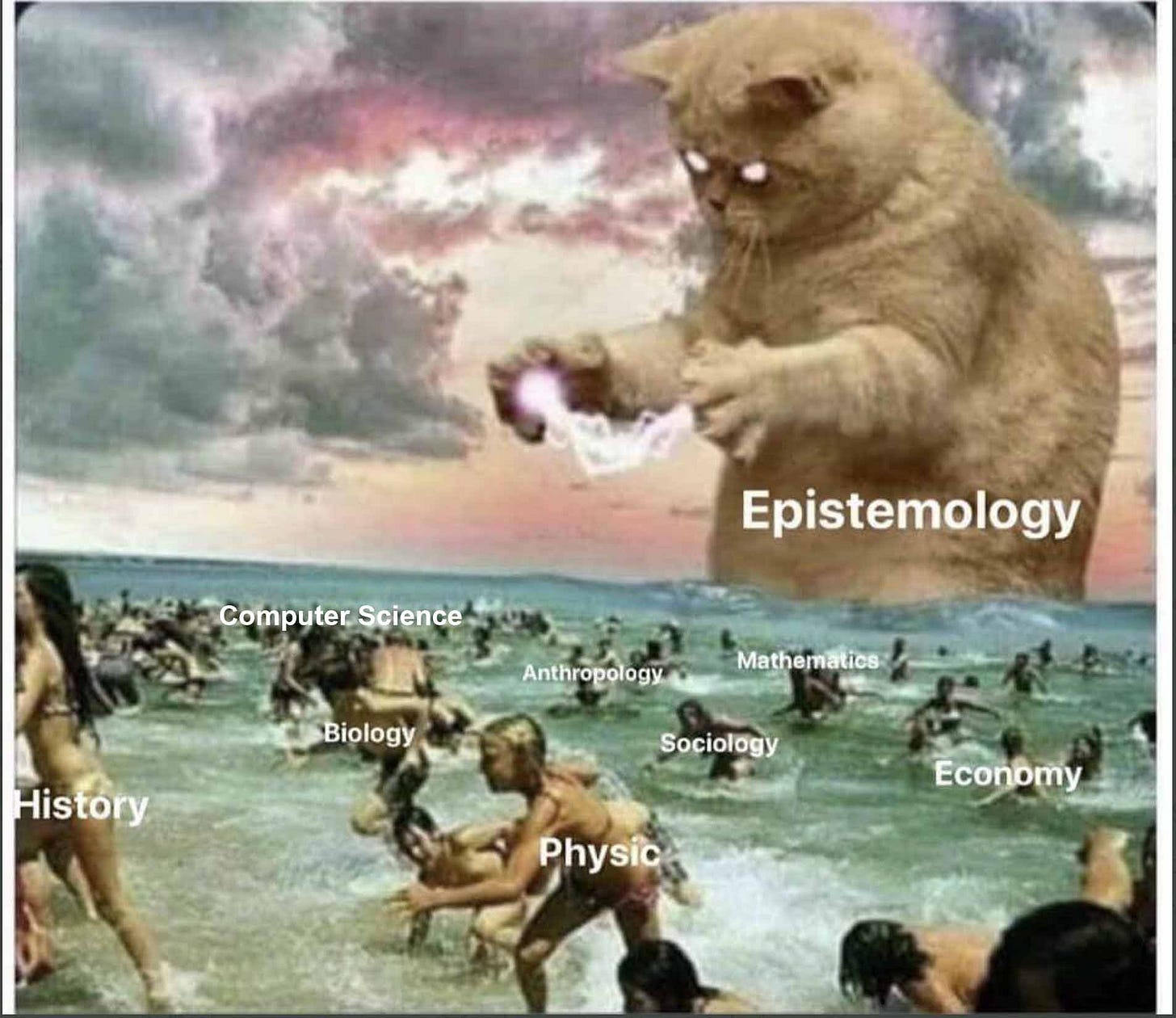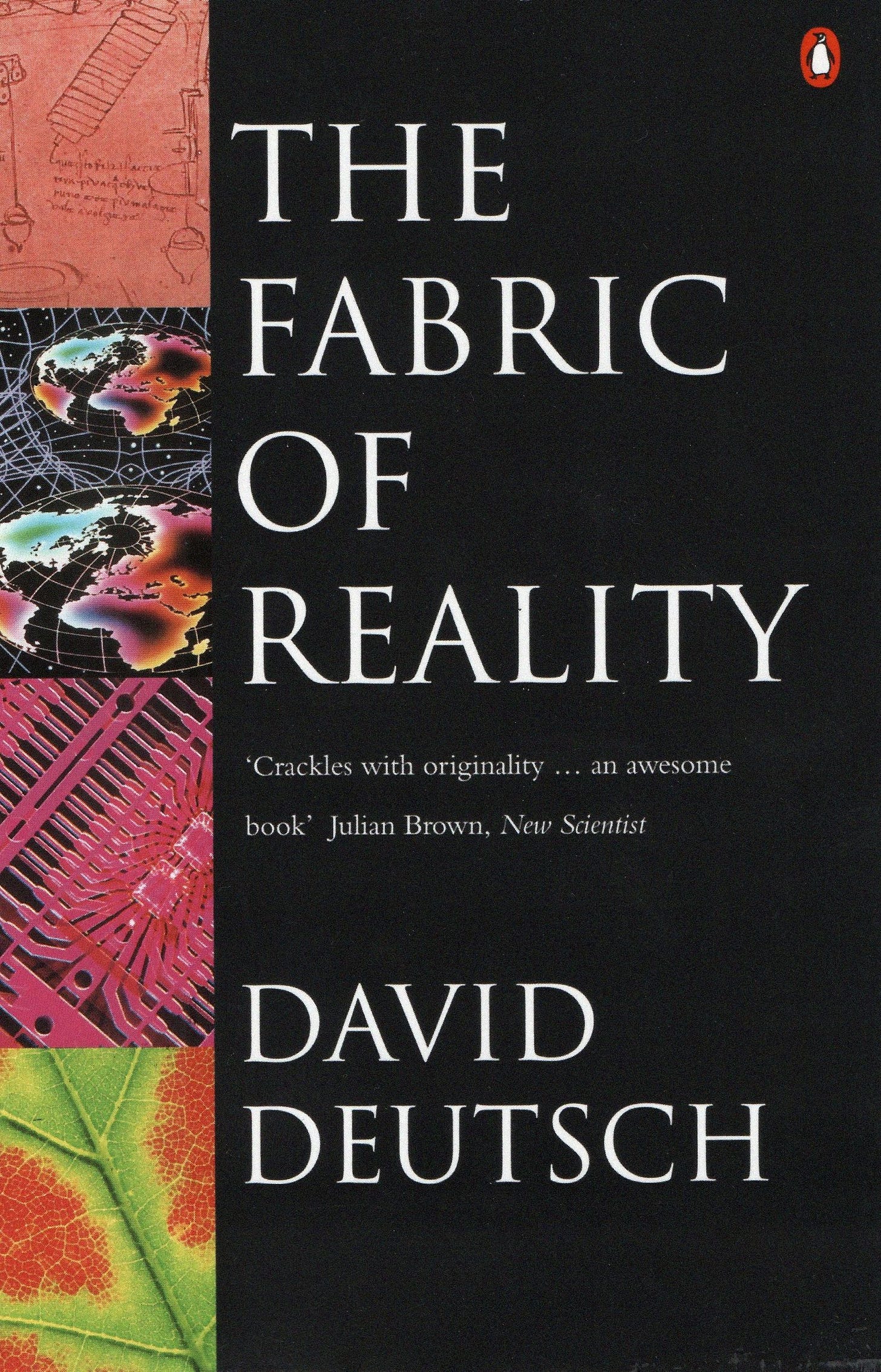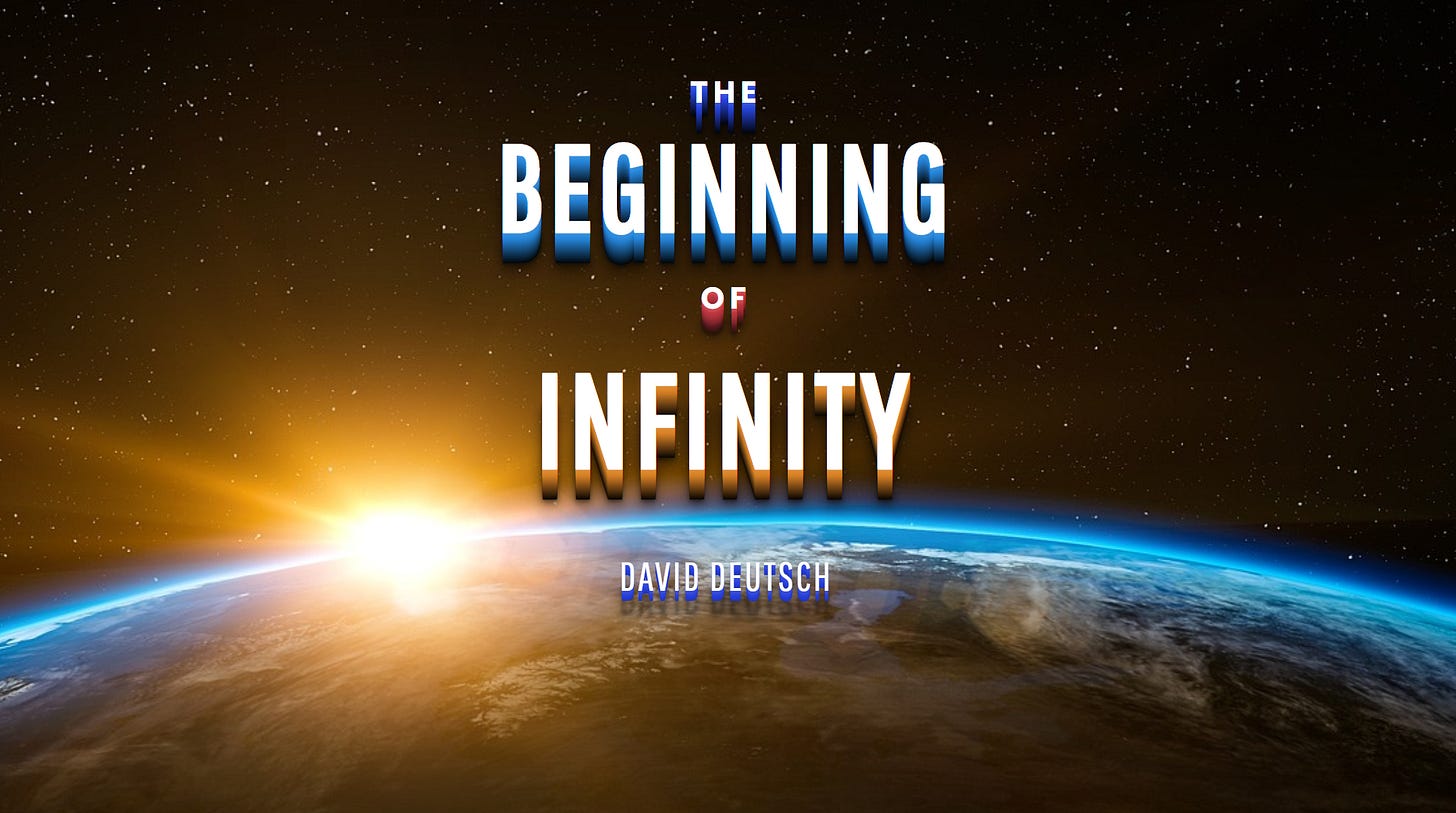Better Know AGI

I spun up this site on a smartphone on a lunch break, an impossible feat in 1997, and yet, while computer engineering has dramatically improved in speed and memory capacity, the quality of artificial general intelligence (AGI) programs hasn't gotten anywhere. But you might say, DeepMind! OpenAI! No. Once you grok the connections of epistemology to computer science, you will see those programs as very helpful tools, but not anything close to a real AGI mind.
If you do not understand the ideas below, which stem from Karl Popper and later from David Deutsch, you will be lost. And most crucially, if you do not understand the ideas that were first established and published in 1997 by David Deutsch, you will not make any progress in understanding AGI, let alone building it.
This post is more of a catalog of the history of ideas of AGI and links out to the actual arguments rather than actually making the case here. Feel free to skim the post and follow your curiosity to whatever seems interesting to you.
Unless you reinvent the ideas below, you are building on sand. As the picture below shows, dominating over you in the sea, looming over your sandcastles, stands a powerful forgotten force — epistemology. David Deutsch connected epistemology, or the theory of knowledge, to the theory of computation unlike anyone before him. Bold words, but Karl Popper can't know everything 😉.
Everything is applied epistemology, meaning that all the fields of knowledge, computer science, physics, mathematics, etc., must all be in accordance with our best theory of epistemology.
The simplest way that Deutsch puts it is:
BTW the actual quote from The Beginning of Infinity is less sweeping: "…a simple test for judging claims […] to have explained the nature of consciousness (or any other computational task): if you can’t program it, you haven’t understood it."
— David Deutsch (@DavidDeutschOxf) July 13, 2020
However, the problem is, to understand how powerful that claim is, you have to see how he gets there. Deutsch is a physicist who wrote the first quantum program in 1985, which pioneered the field of quantum computation, so he knows a thing or two about computer science. To disregard his work is a mistake, which is why if you are interested in AGI, you need to read the list below.
These are the prerequisites, in chronological order, starting with the astounding and amazing book, The Fabric of Reality by David Deutsch, written in 1997, which cemented what the problems in epistemology are, their solutions, and how they connect with the theory of computation, building from the work of Alan Turing. This is the groundwork one must do to begin to understand true AGI.
The Fabric of Reality, Chapter 5 - Virtual Reality, (1997)
What makes reality comprehensible?
The Turing principle.
The universality of computation.
The Beginning of Infinity: ch 5, ch 6, ch 7, (2011)
The Beginning of Infinity: official book website
These chapters are key to computer science and AGI:
Ch 5, The Reality of Abstractions
Ch 6, The Jump to Universality
Ch 7, Artificial Creativity:
Brett Hall's excellent breakdown of The Beginning of Infinity:
Why has AGI not been created yet? (2012)
Text:
How close are we to creating artificial intelligence? | Aeon Essays
Narration:
Beyond Reward and Punishment (2019)
AGIs are people, universal explainers, as well as universal computers.
PDF: http://www.daviddeutsch.org.uk/wp-content/uploads/2019/07/PossibleMinds_Deutsch.pdf
Full Book:
Possible Minds: Twenty-Five Ways of Looking at AI, Brockman, John, eBook - Amazon.com
Narration:
Bonus content:
Knowledge Creation and its Risks
Talk at the Centre for the Future of Intelligence (CFI), Trinity College, Cambridge.
Transcript excerpt on AGI and existential risk: Knowledge Creation and its Risks (roamresearch.com)
Dennis Hackethal
Artificial Creativity Podcast
A Window on Intelligence
Carlos De la Guardia
Making Mind & Making Progress | Substack
Increments Podcast
#43 - Artificial General Intelligence and the AI Safety debate
Naval
More Compute Power Doesn’t Produce AGI
If You Can’t Program It, You Haven’t Understood It
Infinite Days
A relational database of Karl Popper, David Deutsch, Richard Feynman, and more.
Roam Research – A note taking tool for networked thought.
updated nov 2022 to add the increments podcast






